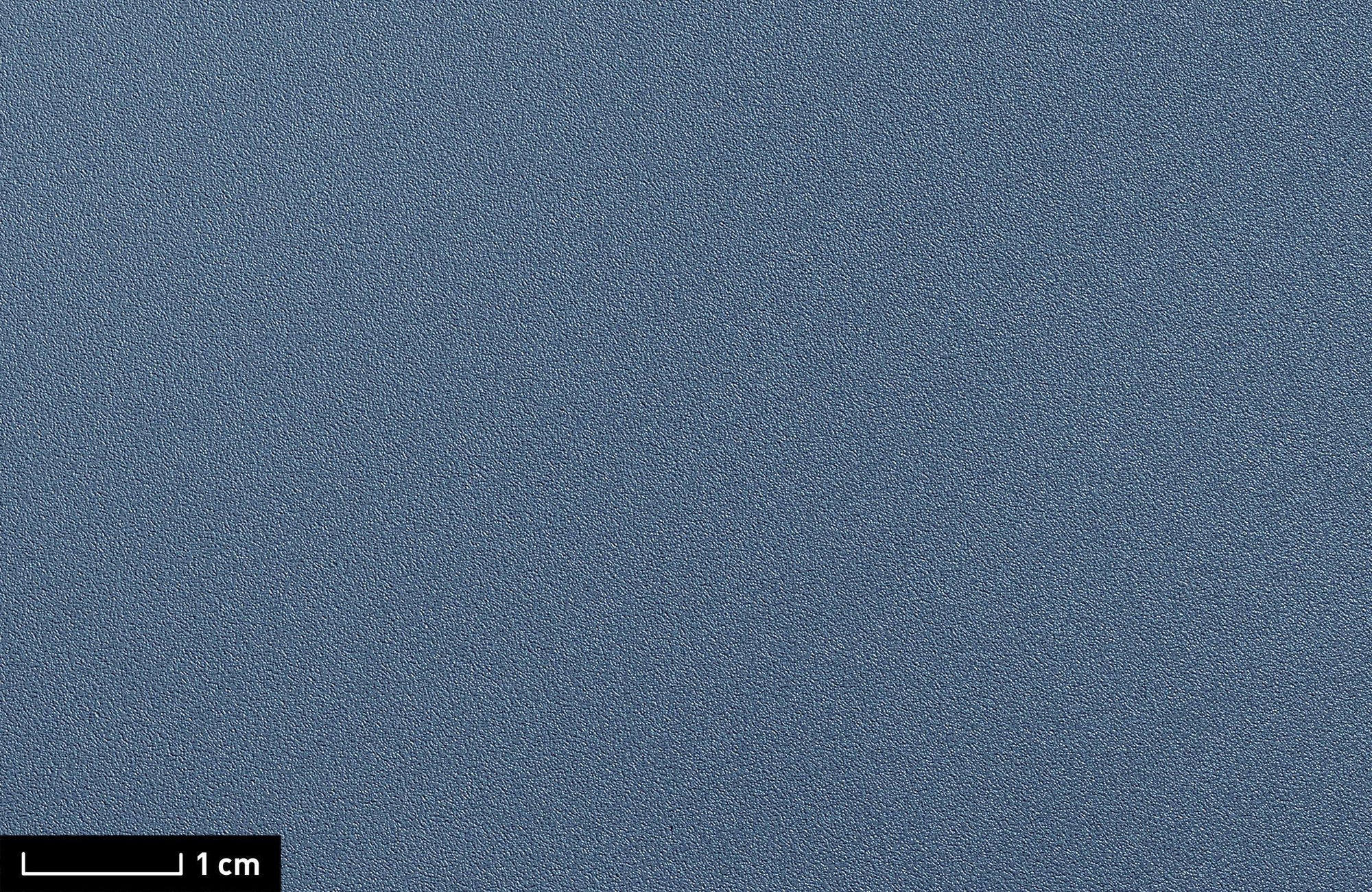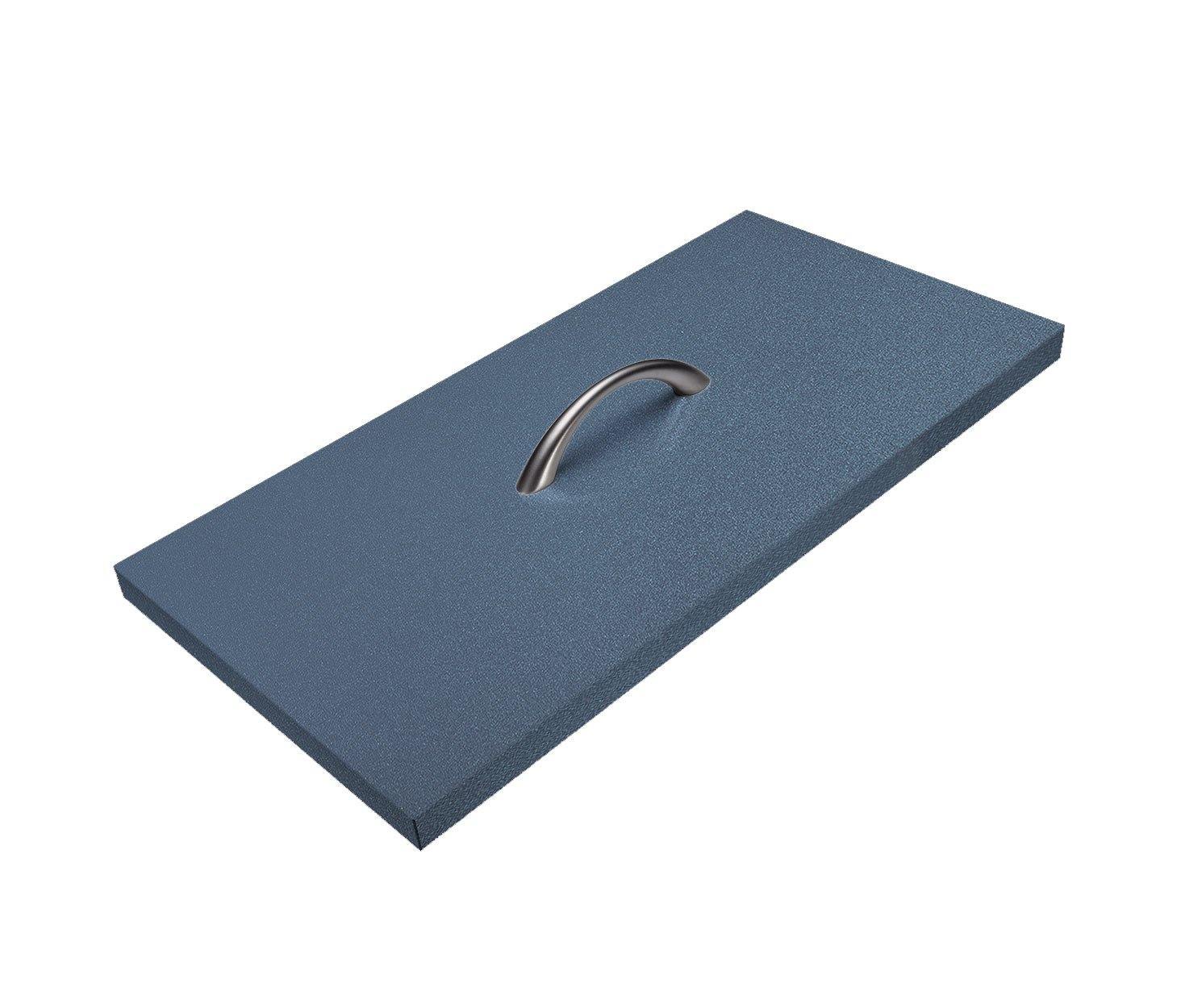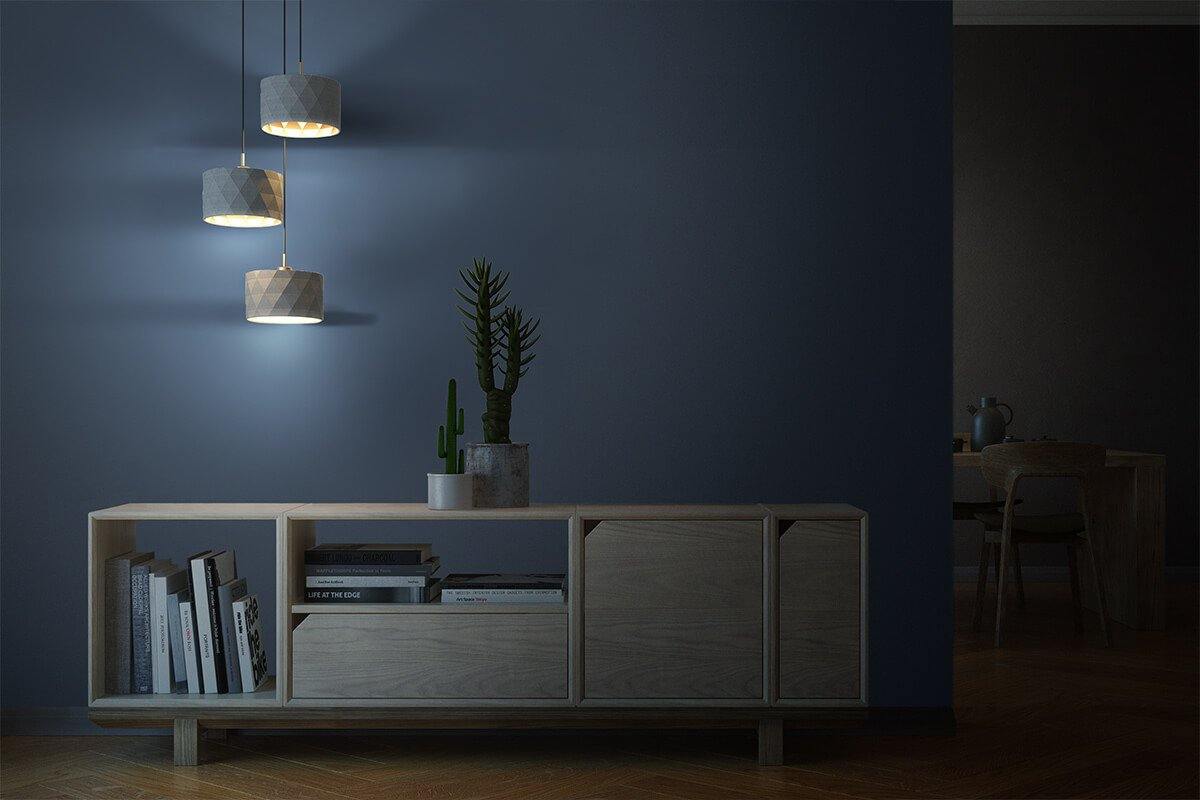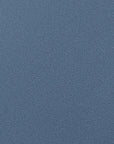

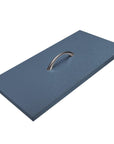

Balm Lavender Foil
1=20cm length, minimum order quantity 1m (5x)



[1=20cm length, minimum order quantity 1m (5x)]
When applying the Balm Lavender film to your motorhome, make sure the room temperature is between 20 and 25°C!
Material: PVC
Roll width: 1.22m
Stability: Robust - 250 µm
Heat resistance: Up to 110°C
Grain: None
Haptics: Tangible
Air duct: No
Scratch resistant: Level 2
Scratch resistant: Level 2The decors can easily withstand everyday wear and tear. However, heavy exposure to scratching objects should be avoided. Note: In order to maintain a long-lasting, beautiful decor, it is generally recommended to treat a film like any other surface in the house. Cutting without a base can damage any commercially available surface. Careless use should therefore be avoided. If handled carefully, any surface will remain beautiful and undamaged in the long term. |
Unless a different deadline is specified in the respective offer, delivery of the goods within Germany will take place within 3 - 5 days after conclusion of the contract (if advance payment has been agreed, after the time of your payment instruction).
Shipping within Germany : €4.95 including VAT per order. Shipping is free for orders over €49.
For Austria or other EU countries the shipping costs are 10,90€.
Unfortunately, deliveries to Switzerland are currently not possible.
Every return not only means extra work for you, but also puts a strain on our mother nature. To do something good for you and our environment, we ask you to be particularly careful when making your selection.
Important: If you don't like something and want to return it, you will have to bear the cost of returning it yourself.
material
The film is made of high-quality PVC (polyvinyl chloride) and is a thermoplastic material. The material is used for goods with a long service life and is recyclable. This makes it ideal for installation in campers.
Antibacterial
Special raw materials in the film reduce the formation and spread of bacteria, germs and fungi. Due to this property, the film is ideal for surfaces in caravan or motorhome kitchens or bathrooms, for example.
Waterproof
This film can be stuck to any wet area without any restrictions. Steam or hot water do not affect the adhesive strength, even at the edges of the film. The film is even used in swimming pools to mark the swimming lanes in the water.
heat
The film is heat-resistant at 110°C. This means that exposure to outside temperatures of up to 110°C will not cause any changes to the surface. If the temperature rises above this heat point, the first changes become apparent, for example the shape of the heat source is imprinted on the surface. Ovens do not usually reach this temperature. Pans or pressure cookers can get hotter than 110°C. Therefore, a coaster will not do any harm.
Malleable
Heat (e.g. from a hot air dryer) makes the film material soft and malleable. Bends or wrinkles can be completely removed by applying heat. When heated, the film can be better modelled onto the surface as it adapts to the shape.
A notice:
The films are highly deformable. A maximum coating of 20% is required for long-term durability. From a deformation of 60%, they slowly lose their feel and color. Too much distortion can lead to later retraction of the stressed areas. We therefore recommend working exclusively with the folding technique!
Dirt-resistant
In everyday use, all decors are dirt-resistant and easy to clean. Laboratory evaluations and test procedures have shown that
Resistance even against aggressive liquids such as coffee, cola, vinegar, 10% hydrochloric acid and other substances for up to 48 hours.
It is generally recommended to remove the residue within the first few hours.
All commercially available products can be used for cleaning and can be removed with a microfiber cloth or sponge depending on the degree of dirt. The surface cleaner for degreasing before bonding is also perfect for cleaning the film surface after bonding and can also be used as a general household cleaner.
Self-adhesive
The surface to be covered with foil must be thoroughly cleaned and degreased before application, ideally with our surface cleaner. Untreated surfaces such as plasterboard, multiplex boards or concrete must be pre-treated with the bonding agent before application. This serves to strengthen the substrate and binds loose particles.
Removable
The film can be removed without leaving any residue and you can return everything to its original state without causing any damage. To do this, slightly heat the surface with a hot air dryer and carefully peel off the film.
Note: If the surface underneath the film is already brittle or fragile, it is possible that the surface will partially come off when peeling off
Pollutant-free
The films were specially designed for indoor use and do not contain any ingredients that are harmful to health. For this reason, they are free of heavy metals, plasticizers and formaldehyde.
Air duct
The films have air channels in the adhesive layer. With an air channel, the formation of bubbles is almost impossible. If bubbles remain after bonding, they can be rubbed away with a finger or a squeegee without repositioning the film. If this feature is missing, you can squeegee the film strip by strip so that no air remains, or simply cut out bubbles at the end of the bonding process.
If the film does not have an air channel, you can squeegee the film strip by strip so that no air remains or simply punch out bubbles at the end of the application.
Here you can find more information about air ducts.
Applying foil in the camper
All films are self-adhesive and will stick to any smooth surface. Simply remove the backing paper and off you go!
The surface to be covered with foil must be thoroughly cleaned and degreased before application. Untreated surfaces such as plasterboard, multiplex boards or concrete must be pre-treated with an adhesion promoter before application. This serves to strengthen the surface and binds loose particles. There is a tutorial from the manufacturer here.
The film can be removed without leaving any residue and you can return everything to its original state without causing any damage. To do this, heat the surface slightly with a hot air dryer and carefully peel off the film ( see tutorial on peeling off the film ).
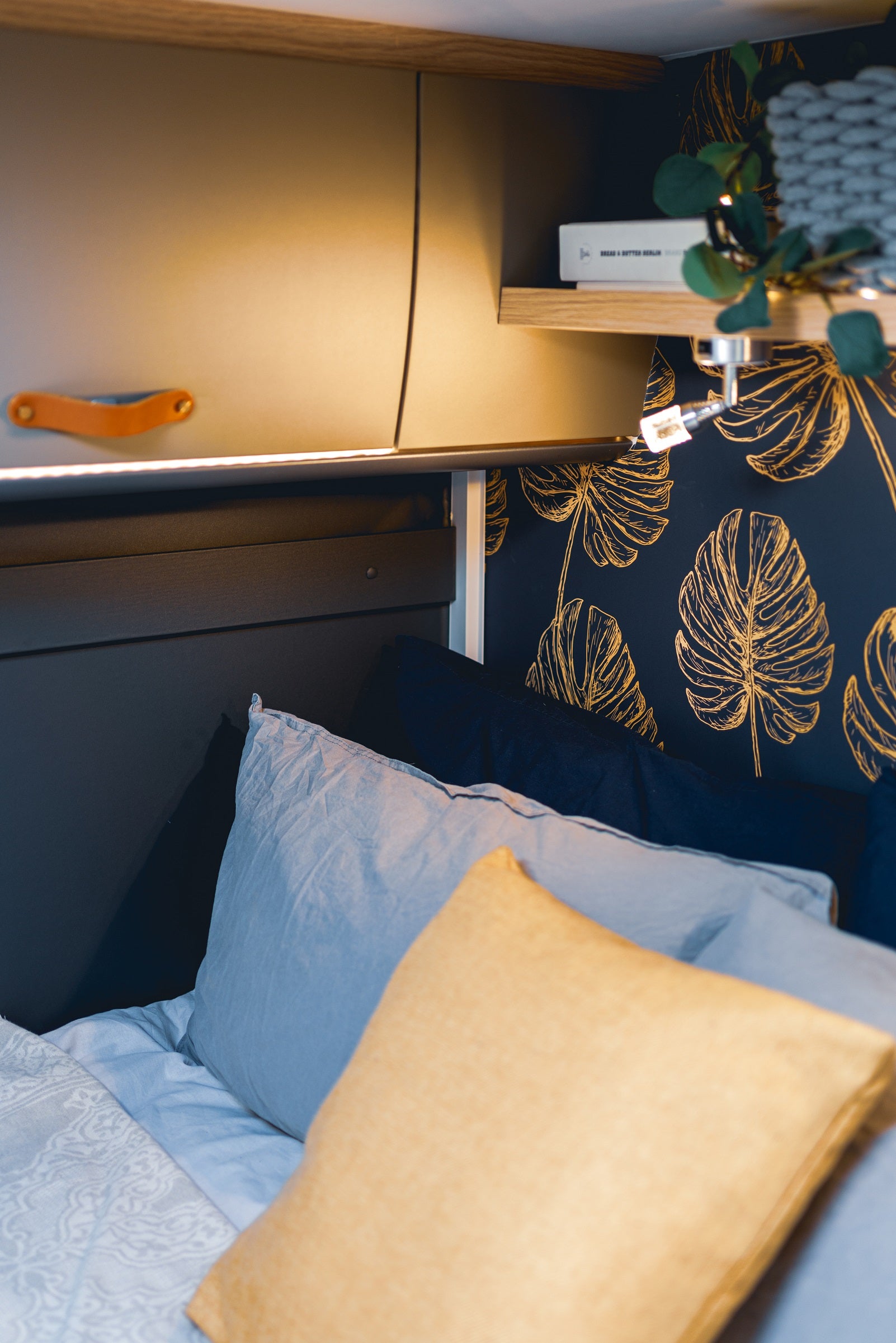
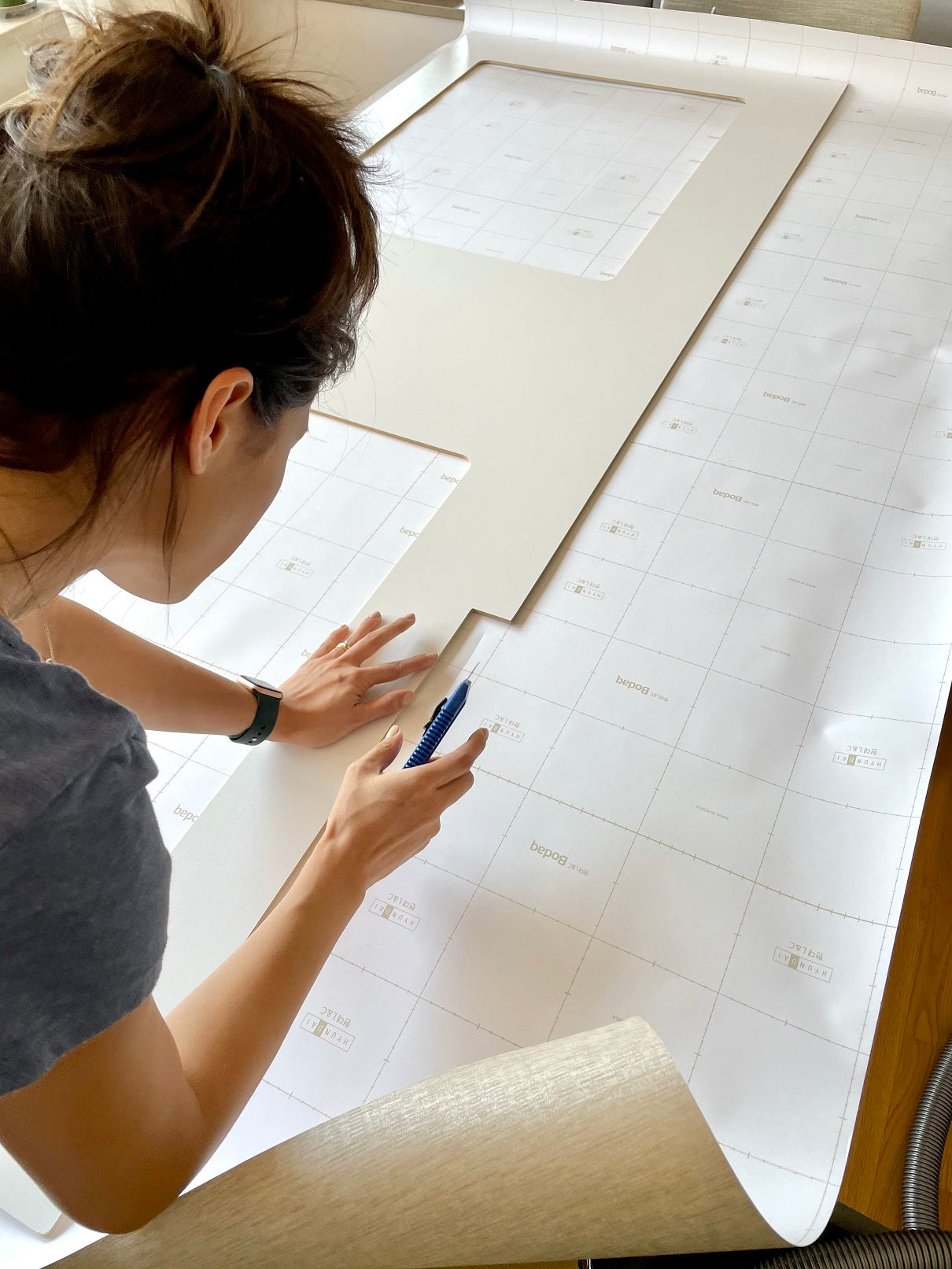
Notes
- If the surface underneath the film is already brittle or fragile, it is possible that the surface will partially come off when the film is removed.
- Before bonding, it is essential to clean the surface thoroughly, degrease it and remove any unevenness. This will allow the adhesive strength to develop fully and there will be no restrictions on water resistance.
- Heating with a hairdryer warms up the adhesive layer and seals the air channels. So first rub out any air pockets and only then blow-dry the film for further processing.

